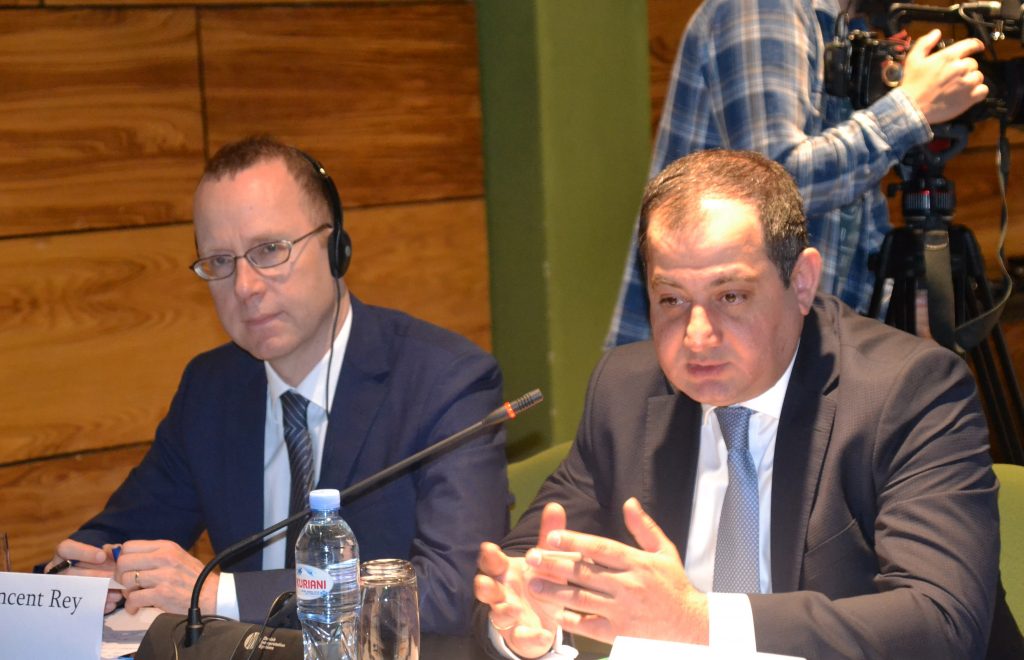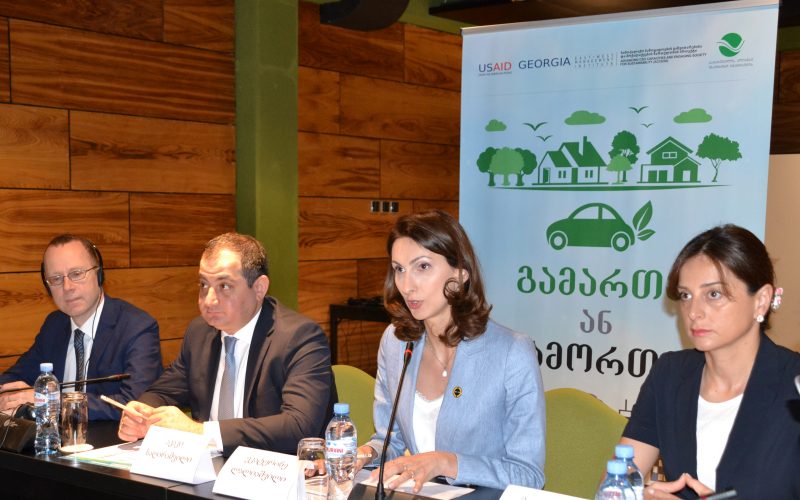In January 2018, the government of Georgia launched a nationwide PTI reform, using a phased-out approach. Initially it was applicable only to certain types of vehicles. Since January 2019, inspection has become mandatory for all types of vehicles. The purpose of this reform is to reduce emissions and the number of road accidents caused by vehicles’ technical deficiencies.
EWMI ACCESS and its partner Georgian Alliance for Safe Roads (GASR) were actively engaged in advocacy for the introduction of this reform and then in the monitoring of its implementation. GASR monitored the first phase of the implementation of the PTI reform in October-November 2018 and put forward recommendations for improving the process. In March-May 2019, they conducted follow-up monitoring to assess the reform after it became mandatory for all. Monitoring methods involved desk research (analysis of the existing legislative framework and statistical data), observation of the testing process, questionnaire survey of PTI centers’ customers and focus group discussions with various stakeholders.
On May 28, GASR presented the results of the second phase of monitoring to stakeholders from the government, Tbilisi City Hall, PTI Centers, international organizations, and CSOs, and discussed possible solutions to the major flaws and problems identified through the study.
According to the study, the total of 322 580 vehicles underwent the PTI as of end of March, 2019. 72% out of this number went through the inspection for the first time and 52% of them did not pass the road-worthiness test.
For the second phase of the reform, the new testing centers were built quickly to meet the increased demand and ensure smooth implementation of the testing process. Infrastructure of the testing centers meets international standards and the process of testing is well-managed, queues have not been seen. In general, customers are satisfied with services provided by the centers. Compared to the previous year, the population is more informed and the inspectors at PTI centers are better prepared. Introduction of the so called smart cameras resulted in increased flow of the vehicles to the testing centers.
However, the study revealed many flaws of the PTI Reform enforcement process, such as:
- There is neither government strategy nor action plan for execution of the technical inspection reform. Roles and responsibilities of various state agencies, as well as the major agency responsible for managing the PTI process are unclear. This significantly hinders the coordination and supervision of the reform enforcement.
- Consolidated information on the enforcement of the reform is not available. At present, PTI centers run several independent databases of inspected vehicles; therefore it is difficult to get a comprehensive picture of the status of the reform and car fleet that passed through inspection. Monitoring of the PTI process is made through analysis of records of the 24-hour surveillance cameras. There is a need to introduce an effective and transparent monitoring system.
- Despite guidelines and instructions, inspectors at PTI centers do not apply unified approach while testing. To ensure the unified approach at all centers, the inspectors need to be retrained on a regular basis.
- Tricks and manipulations applied by drivers to pass the inspection successfully – using high quality fuel to pass the emission test; renting/borrowing car parts (tires, fire extinguisher and medical kit, lights, etc.), etc. In order to eliminate such cases, it is recommended to introduce the external control mechanism. This recommendation is proved by the experiment conducted by GASR, when the organization made alternative examination of 12 vehicles that passed the PTI successfully and five out of these 12 vehicles failed to meet the emission standards.
- It is noteworthy, that the current vehicle Periodic Technical Inspection (PTI) controls only CO emissions (and this pollutant is below the norm). In its current state, the PTI does not look into NO2 and other important pollutants. These are the pollutants that are reduced by catalytic converters. Checking for catalytic converters will become a mandatory part of PTIs in 2020.
More detailed information about the meeting and a summary of monitoring findings is available here.





















